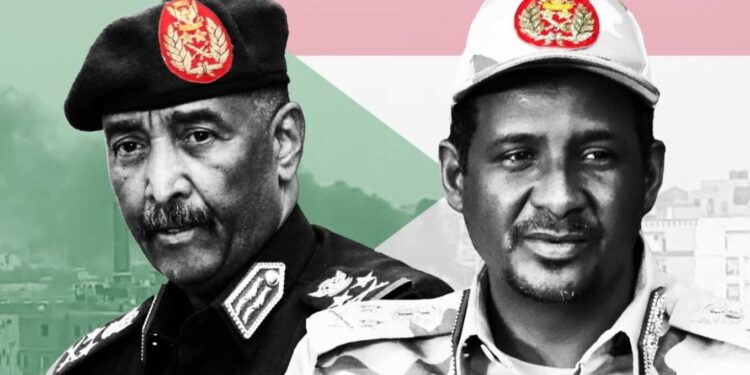Sudan’s warring parties have signed a commitment to allow humanitarian assistance to reach civilians affected by the ongoing conflict, according to US officials.
The commitment, signed in Jeddah, Saudi Arabia by representatives of the Army and paramilitary Rapid Support Forces (RSF) is not a ceasefire, but is aimed at securing humanitarian aid.
It requires both sides to allow the restoration of basic services, including electricity and water, as well as withdrawing security forces from hospitals and arranging for respectful burial of the dead.
“We are cautiously hopeful that their willingness to sign this document will create momentum to bring in relief supplies,” stated a U.S. official involved in the talks.
However, the official acknowledged that the parties remain significantly apart in their positions.
The signing comes after the U.N. Human Rights Council narrowly passed a motion to enhance monitoring of human rights abuses in Sudan.
The motion, supported by the United Kingdom and the United States, grants the U.N.’s Sudan expert increased powers to oversee abuses.
British Ambassador Simon Manley stressed the importance of monitoring the situation and expressed solidarity with the people of Sudan.
The motion faced opposition from African countries, with Sudanese Ambassador Hassan Hamid Hassan emphasizing that the conflict is an internal matter requiring African solutions.
Earlier, U.N. human rights chief Volker Turk called on influential countries in Africa to encourage an end to the fighting, noting that the conflict has plunged Sudan into a catastrophic situation.
Witnesses reported intensified fighting in Sudan’s capital, including airstrikes, rocket-propelled grenades, and gunfire.
The Sudanese army, led by General Abdel Fattah al-Burhan, targeted Khartoum, Omdurman, and Bahri in an attempt to dislodge the paramilitary Rapid Support Forces (RSF), led by General Mohammed Hamdan Dagalo.
Concerns have been raised about the involvement of the Russian mercenary group Wagner, but its head, Yevgeny Prigozhin, denied their presence in Sudan’s conflict.
The violence has taken a severe toll, with over 600 fatalities and more than 5,000 injuries, as reported by the World Health Organization.
The number of internally displaced persons has also risen dramatically, with over 700,000 Sudanese fleeing their homes since the outbreak of violence.
The United Nations refugee agency highlighted the challenges faced by aid organizations due to security concerns and looting.
The World Food Program revealed that approximately 17,000 tons of food, valued between $13 million and $14 million, were stolen from its warehouses across Sudan.
Acute food insecurity is expected to increase, affecting up to 2.5 million additional people in the near future. Currently, over 19 million people in Sudan are impacted by the crisis, representing two-fifths of the country’s population.




































